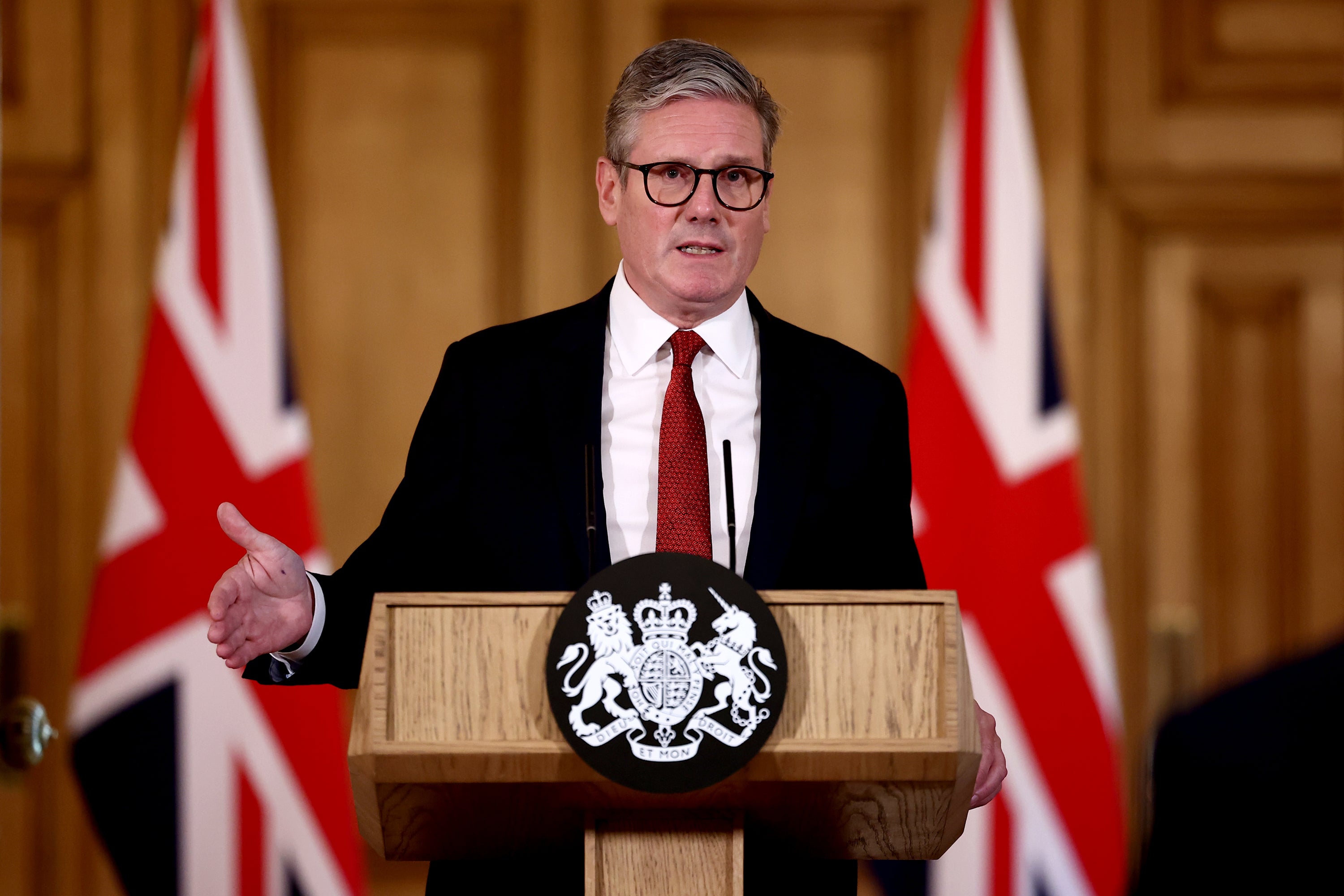Keir Starmer versus the mob: he is not a lefty human rights lawyer after all
The prime minister shows no interest in civil liberties as he tries to pose as tough on law and order against rioters, writes John Rentoul


The Conservative attack on Keir Starmer for being a typical north London human rights lawyer never really took hold, and now we can see why. It was Boris Johnson who started it, calling Starmer a “lefty Islington lawyer” as if he, Johnson, had not lived there for decades, and Rishi Sunak continued it, although it never seemed to come so naturally to him.
But it didn’t work, because Starmer is not a great proponent of human rights. Yes, he says Britain will “never” disown the European Convention of Human Rights when he wants to convince EU leaders that he is a good European. But the actual rights contained therein? He doesn’t seem so interested in them.
His announcement of a “new clampdown on criminal and violent disorder” on Thursday included the promise of the “wider deployment of facial recognition technology”. That is not the kind of thing that north London members of Doughty Street chambers tend to sound enthusiastic about. They tend to worry about the “civil liberties implications” of the “surveillance state” and the dangers of racial profiling.
In a major crossover event on Twitter, Tommy Robinson, the anti-immigration agitator, protested that the prime minister was “ushering in facial recognition”.
Of course, the left and right of civil liberties have been confused for some time. The Conservatives started to get the better of Tony Blair only when they made common cause with Shami Chakrabarti, the director of Liberty and the epitome of a human rights lawyer even though she lived in south London, to oppose Labour’s plans for the 90-day detention of terrorist suspects.
Starmer seems to show a Blair-like disregard for the sort of thing that human rights lawyers worry about. It was striking – although it has nothing to do with the fear of riots in the next few weeks – that Shabana Mahmood, the new justice secretary, announced on Thursday a ban on prisoners serving life sentences getting married. This was in response to attempts by Levi Bellfield, the serial killer jailed for the murder of Milly Dowler, to get married in prison. It involved Mahmood using a provision of the Victims and Prisoners Act 2024, introduced by Dominic Raab as justice secretary last year.
But it is precisely the sort of thing that a human rights lawyer might say was contrary to the European Convention on Human Rights, article 12 of which is the right to marry. The ban has echoes of the long-running tussle between the UK government and the Strasbourg court over the right of prisoners to vote. That gave David Cameron the chance to look as if he was standing up to the European court in order to be tough on criminals. Perhaps Starmer and Mahmood relish the chance to do something similar over the right of serial killers to marry.
Starmer needs to show that he is tough on crime. He and police chiefs are worried about the hot weather – usually a more important factor in public disorder than supposed political grievances. In particular, he cannot allow the violent disorder in Southport, Hartlepool and London this week to give the impression, fostered so assiduously by Nigel Farage, that “law and order on our streets is breaking down”. Odd that it is Hartlepool again – the place is a litmus test of Starmer’s leadership. When Labour lost the by-election there in 2021, Starmer says he nearly gave up. Now it is a Labour seat again, and Starmer wants to hold onto it.
But Starmer cannot just be tough on crime: he has to be tough on the idea that the police treat “right-wing” and “left-wing” thugs differently. That is what Farage implies when he criticises the prime minister for blaming “far-right thugs” for this week’s violence. The implication is that the police were less aggressive in dealing with Roma and Asian-origin rioters in Leeds last month, or with pro-Palestinian demonstrators in London since 7 October, than with the white rioters this week.
It doesn’t make much sense, and Farage should presumably approve of measures to help the police maintain law and order, including measures that might impinge on the civil liberties of Tommy Robinson’s supporters – who Farage says are, after all, nothing to do with him.
When it turns out that Starmer is not a lefty north London human rights lawyer after all, you might expect Farage to support him. Of course he won’t, but Starmer’s refusal to be caricatured as a soft civil libertarian does give the leader of Reform UK less of a chance to exploit the scenes of disorder.



Join our commenting forum
Join thought-provoking conversations, follow other Independent readers and see their replies
Comments